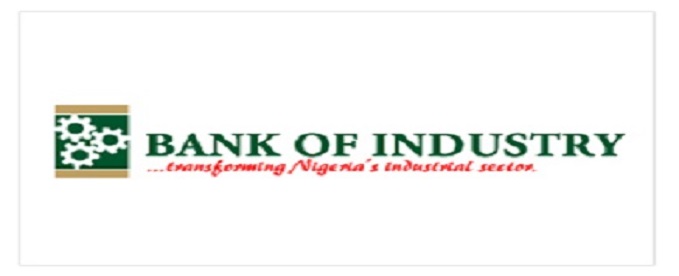E-Financial
CBN, Stakeholders Seek Collaboration among MFBs on Micro-insurance

The Central Bank of Nigeria (CBN) and financial sector experts have called for collaborative efforts among microfinance banks (MFBs) in order to promote micro-insurance as a tool for deepening financial inclusion.

Making this call in Lagos, at the 6th annual symposium of the Nigerian Microfinance Platform (NMP) organised by the Microfinance Learning and Development Center (MLDC), with the theme, ‘Expanding The Frontiers of Financial Inclusion: The Microinsurance Option,’ the experts averred that microfinance banks are instrumental to the expansion of microinsurance services among the populace.
Addressing participants at the symposium, Deputy Governor, Financial Sector Surveillance, CBN, Mrs. Aisha Ahmad, said there was need for a collective strategy to re-emphasise the importance of micro-insurance as a financial service and re-align it as a vital tool in attaining a higher level of financial inclusion within the Nigerian Microfinance Sub-sector through the security of micro- businesses.
Represented by Mrs. Idowu Akinlade, Deputy Director, Other Financial Institution Department (OFISD), CBN, Ahmad, was quoted in a statement to have said: “Financial inclusion, which entails affordable and available access to financial services by every adult in any given country or area,also includes insurance; however, this aspect of financial servicing has been under-emphasised for too long.
“I consider it vital for us, through collaborative efforts, to look deeper into this shadowed aspect of financial inclusion, exchange ideas with our counterparts from other countries, build regulator/operator capacity and tackle issues within the sector to enhance the provision and availability of affordable financial services in Nigeria.”
Also making a case for collaboration among MFBs on micro-insurance, the Group Chief Executive Officer, Letshego Holdings, the parent company of Letshego MFB, Andrew Fening Okai, said: “Microfinance participants should commit to collaborate on building micro-insurance as product of necessity and do it with confidence – adopt and develop clear value propositions while paying attention to simple but efficient distribution channels supported by easy claims resolutions.”
On his part, Managing Director/Chief Executive, Nigeria Deposit Insurance Corporation (NDIC), Hassan Bello advised the participants on factors MFBs need to consider in the provision of micro-insurance services.
Represented by Joshua Etopidiok, Director, Special Insured Department SIID, NDIC, Hassan said the factors included: Trust quotient of the insurance industry; Ease of purchase of micro-insurance services; customer service through digitisation; and advocacy for micro-insurance.
Speaking on the urgency for MFBs and micro businesses to embrace micro-insurance, the President Chartered Institute of Bankers of Nigeria (CIBN), Mr. Bayo Olubgemi, said: “The onslaught of the COVID-19 pandemic and the social unrest which climaxed the #EndSars protest corroborate the need for insurance no matter the size of a given business. You will recall that during the protests, social tensions escalated to heightened levels of violence, looting and vandalism.
“No doubt, uninsured businesses felt the full effects of the destruction with no or limited options for recovery. I strongly believe that this experience provides a very strong use case for the adoption of micro-insurance.”
Corroborating this position, Board Chairperson, AFOS Nigeria LTE, Adetutu Ogunnaike, AFOS, said the need for inclusive micro-insurance cannot be overemphasised, especially in view of the achievement of AFOS through the empowerment of low-income people.
E-Financial
Ecobank Nigeria Fully Repays $300m Eurobond Notes

Ecobank Nigeria has announced the successful repayment of the outstanding principal and accrued interest on its original $300 million Eurobond due February 16, 2026, marking a significant milestone in its liability management strategy and overall balance sheet strengthening efforts.

Following the full repayment of the Eurobond obligations, the Bank stated that it will now focus its funding initiatives primarily on the domestic capital markets. T
his strategic shift reflects growing confidence in Nigeria’s local debt market and aligns with Ecobank Nigeria’s long-term objective of optimising funding costs while deepening its participation in the domestic financial ecosystem.
“Going forward, Ecobank Nigeria will prioritise domestic credit ratings and local debt issuance to achieve its funding objectives,” stated Ogorchukwu Okwechime, Financial Controller, Ecobank Nigeria, in Lagos.
He added that the successful repayment reinforces the Bank’s commitment to maintaining a resilient balance sheet and sustaining investor confidence.
The tender offer was conducted with Renaissance Capital Africa (Renaissance Securities Nigeria Limited) acting as financial adviser and dealer manager, while Sodali & Co Limited served as tender agent.
The notes were originally issued by EBN Finance Company B.V., with limited recourse to the issuer, for the sole purpose of financing the purchase of the US$300 million 7.125 per cent Senior Note due 2026 issued by Ecobank Nigeria.
The transaction underscores Ecobank Nigeria’s proactive approach to liability management, prudent capital planning, and strategic alignment with evolving market conditions.
It further positions the Bank to leverage domestic funding opportunities while maintaining financial flexibility and operational stability.
E-Financial
BoI Secures CBN’s Approval for Non-interest Banking Operation

Bank of Industry (BOI) has received approval from the Central Bank of Nigeria (CBN) to operate a Non-Interest Banking (NIB) Window.

Theodora Amechi, bank’s divisional head, Public Relations, said the regulatory nod allows BOI to launch non-interest banking operations, targeting underserved business segments with tailored financial solutions to support Nigeria’s industrial development.
BOI stated that NIB operations will promote inclusive growth, attract ethical funding, bolster the real economy, and finance customer assets and raw materials using approved non-interest products.
“This approval authorises BOI to commence Non-Interest Banking operations, positioning the bank to further advance Nigeria’s sustainable and inclusive industrial development through tailored financial solutions for underserved and high-impact business segments.
“The Non-interest Banking operations will enable BOI to drive inclusive growth, mobilise new ethical funding, expand support for the real economy, and align its financing activities with social and developmental objectives.
According to the bank, under this framework, BOI will be able to finance customers’ assets and raw materials using approved Non-Interest Banking products.
Announcing this milestone, Dr Olasupo Olusi, MD/CEO, Bank of Industry, said, “This licence marks a pivotal moment in the Bank’s journey of transforming Nigeria’s industrial sector. With this licence, we can reach a new category of borrowers who, before now, could not be served.”
He said the approval underscores the CBN’s confidence in the Bank’s commitment to responsible financing, adding that it will allow the bank to scale its operations, introduce innovative financing solutions, and deepen support for Micro, Small and Medium Enterprises (MSMEs), as well as other underserved segments critical to Nigeria’s sustainable economic growth.
“BOI’s decision to commence Non-Interest Banking operations is aimed at expanding access to ethical funding for businesses—particularly those that have traditionally avoided conventional interest-based financing.
This initiative opens new opportunities for ethically motivated and faith-sensitive enterprises, as well as segments of the economy that face challenges accessing traditional credit.
It enables such businesses to access much-needed financing and participate confidently in the formal financial system in a manner consistent with their values and business realities.
Bank of Industry (BOI) is Nigeria’s foremost Development Finance Institution, committed to driving industrial growth and inclusive economic development,” Olusi said.
Established in 1959 as the Investment Company of Nigeria (ICON) and reconstituted as Nigerian Industrial Development Bank (NIDB) under World Bank guidance in 1964.
The Bank assumed its current form in 2001 following the merger of the Nigerian Bank for Commerce and Industry (NBCI) and the National Economic Reconstruction Fund (NERFUND).
The Bank’s primary mandate is to provide financial assistance for the establishment and expansion of large, medium, small-scale, and micro projects.
E-Financial
Zenith Bank Warns Public Over Fake Jim Ovia Investment Videos

Zenith Bank Plc has cautioned the public against fraudulent videos circulating online falsely claiming that Group Chairman Dr. Jim Ovia endorses an investment scheme called “Wealth Bridge.”

Jim Ovia
In a disclaimer issued Tuesday by its management, the bank described the videos—circulated via the “Greece Island” Facebook handle—as entirely fake, doctored content bearing no connection to Dr. Ovia, the bank, or its affiliates.
The materials falsely promise up to N2 million in weekly returns for a N380,000 investment, while baselessly alleging Central Bank of Nigeria (CBN) endorsement and redirecting viewers to a sham “Arise News” webpage with a signup portal.
“Our attention has been drawn to a doctored video and still pictures currently circulating on social media, purporting to depict the Group Chairman of Zenith Bank Plc (‘the Bank’) as endorsing an investment scheme called ‘Wealth Bridge’ on the ‘Greece Island’ Facebook handle and soliciting members of the public to engage in a business relationship with the so-called entity,” the statement read.
“This claim is entirely false and has no connection whatsoever to the Group Chairman, the Bank or any of its affiliate companies.”
Zenith Bank stressed that Dr. Ovia and the institution have no knowledge of or partnership with “Wealth Bridge,” “delicious sitee,” “AfriQuantumX,” “Stock market analyst 1,” or related entities. The public was warned that dealing with these schemes carries full personal risk.
Ravenewsonline urges vigilance against rising impersonation scams targeting financial institutions.

 News2 days ago
News2 days agoAfrican Leaders Highlight Africa’s AI Ambitions

 General News3 days ago
General News3 days agoUBA Unveils Diaspora Platform to Connect Global Africans with Investment, Wealth Opportunities

 General News2 days ago
General News2 days agoNDPC Orders Probe into Temu over Alleged Data Privacy Breaches

 Telecom2 days ago
Telecom2 days agoMTN, BUA, Dangote & Other Industry Giants Triumph at NGX Made of Africa Awards

 Telecom2 days ago
Telecom2 days agoX Suffers Global Outage, Millions Barred from Access

 Telecom2 days ago
Telecom2 days agoMTN CIO Urges Africa to Lead Fourth Digital Revolution

 General News2 days ago
General News2 days agoLeo Stan Ekeh Foundation, Zinox Group To Invest 10B on 1000 University Tech Scholarships for Indigent Nigeria Wiz-kids

 News2 days ago
News2 days agoLG Nigeria Begins Nationwide Search for Oldest Working TV, Rewards Loyalty with AI QNED Upgrade






















